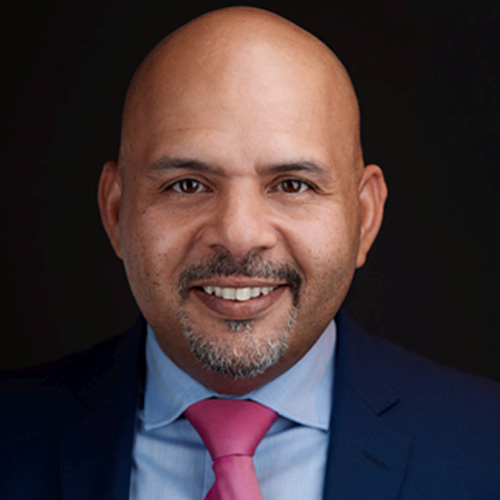On the lighter side of things, we ask Bahaa Hudairi, Regional Sales Director – META, Lookout, what makes him tick.

What would you describe as your most memorable achievement?
I have been blessed to have had several ‘highs’, both in my personal and professional life, but from a business standpoint, one recent achievement that comes to mind was a major deal I closed in Saudi. What made this so special was that it was at the height of COVID – we had to manage all the discussions remotely which was interesting to say the least, particularly because I had no prior relationship with the customer or the reseller. Also, the solution we provided was for a digital wallet application which was a critical service during COVID, so it was nice to see that our technology was also helping businesses and consumers get through a very difficult time.
What made you first think of a career in technology?
I have always been fascinated by technology. As a teenager I would assemble PCs and consequently chose to study communications engineering in university. During my time at university, a few friends and I managed the computer networks in the lab but I quickly realised that I was less interested in the IT/infrastructure bit of technology and more fascinated by cybersecurity. So soon after graduating, I embarked on a career in cyber. That was back in 1999 and the rest as they say, is history.
What management philosophy do you employ in your current role?
I believe you get the most out of employees when you empower them to do the jobs they were hired for. As such, I put a big focus on making sure I hire the right talent and once the person is on board, I prefer not to micromanage and instead, make sure the employee has the tools and resources to excel at their job. I am always on hand to provide guidance, be it on corporate strategy or how best to approach a customer, but I want the people that work for me to know that I trust them to do the right thing for our customers and our business.
What do you think is the current hot tech talking point?
While it might not be a new trend, I think cloud continues to be a focus in the region. Whether it be to underpin an organisations’ Digital Transformation strategy or to minimise cost, we are seeing organisations, particularly since the pandemic, accelerate their move from on-prem to cloud. Another trend we are seeing, again arguably accelerated by the pandemic, is BYOD. The convergence of these two trends means, now more than ever, organisations need a unified platform that protects users, devices, access and data across all applications and devices, from any modern day cyberthreats and that’s where SSE comes in.
How do you deal with stress and unwind out of the office?
I am a self-professed workaholic and if my laptop or my phone is within reach and I see an email come in, I have to action it. So for me, travelling to remote destinations, where I am almost ‘forced’ to disconnect, is something I try to do two to three times a year. For very similar reasons, I also really enjoy camping with friends and the UAE offers some amazing camping venues, particularly in the winter months.
If you could change one career decision what would that be?
The very first company that I worked in, my role was a sales engineer. I established a very strong track record of success and was well liked and respected within the company, but eventually chose to move to another security vendor, in a similar role. After a couple of years in a technical role with the second company, I made the transition to sales but it was quite a difficult transition for a myriad of reasons and definitely wasn’t as smooth as it would have been had I made the switch at the first company I had worked for. So that would probably be the only thing I would have done differently – switched from a technical to a sales role at my first company.
What do you currently identify as a major area of investment in your industry?
From a macro perspective, as you know there is a skills shortage in IT, specifically in cybersecurity and we see this across customers, vendors and the channel. So one big area where we are seeing investment is in education, be it providing new skills or upskilling, for employees.
More tactically, at a customer level, following on what I mentioned earlier regarding trends, we are seeing customers make big investments in making the transition from on-prem to cloud infrastructures.
What are the region specific challenges when implementing new technologies in the Middle East?
Broadly speaking, I think the challenges that organisations face when it comes to implementation of technology are similar to those faced by organisations in other parts of the world. What makes the Middle East unique, is the volume and sophistication of attacks we see – whether it be because of the abundance of natural resources or some of the geo-political tensions, the region is a key target for bad actors.
It is well documented that in addition to having the right technology, you also need to have the right resources and processes in place. We’ve already talked about the lack of skills so this is obviously one challenge that the region needs to address. I am hopeful that buoyed by government initiatives like the UAE’s 100K Coders and Golden Visa scheme, as well as efforts on the part of private enterprise, we will bridge this talent gap slowly, but surely.
What advice would you offer somebody looking to obtain a C-level position in your industry?
A key trait for any good leader is having the ability to lead by example. And this is key, particularly in cybersecurity. Any aspiring C-suite executive must be able to demonstrate to the wider organisation his/her commitment to keeping the organisation safe – this means everything from following processes around BYOD, etc; taking the annual cybersecurity education courses seriously and most importantly, being involved in the cybersecurity decision making process. We have already seen that in Europe, C-suite executives are now liable for security breaches and while time will tell is we see similar legislation here, it does make it clear that C-suite executives need to take ownership of cybersecurity.


